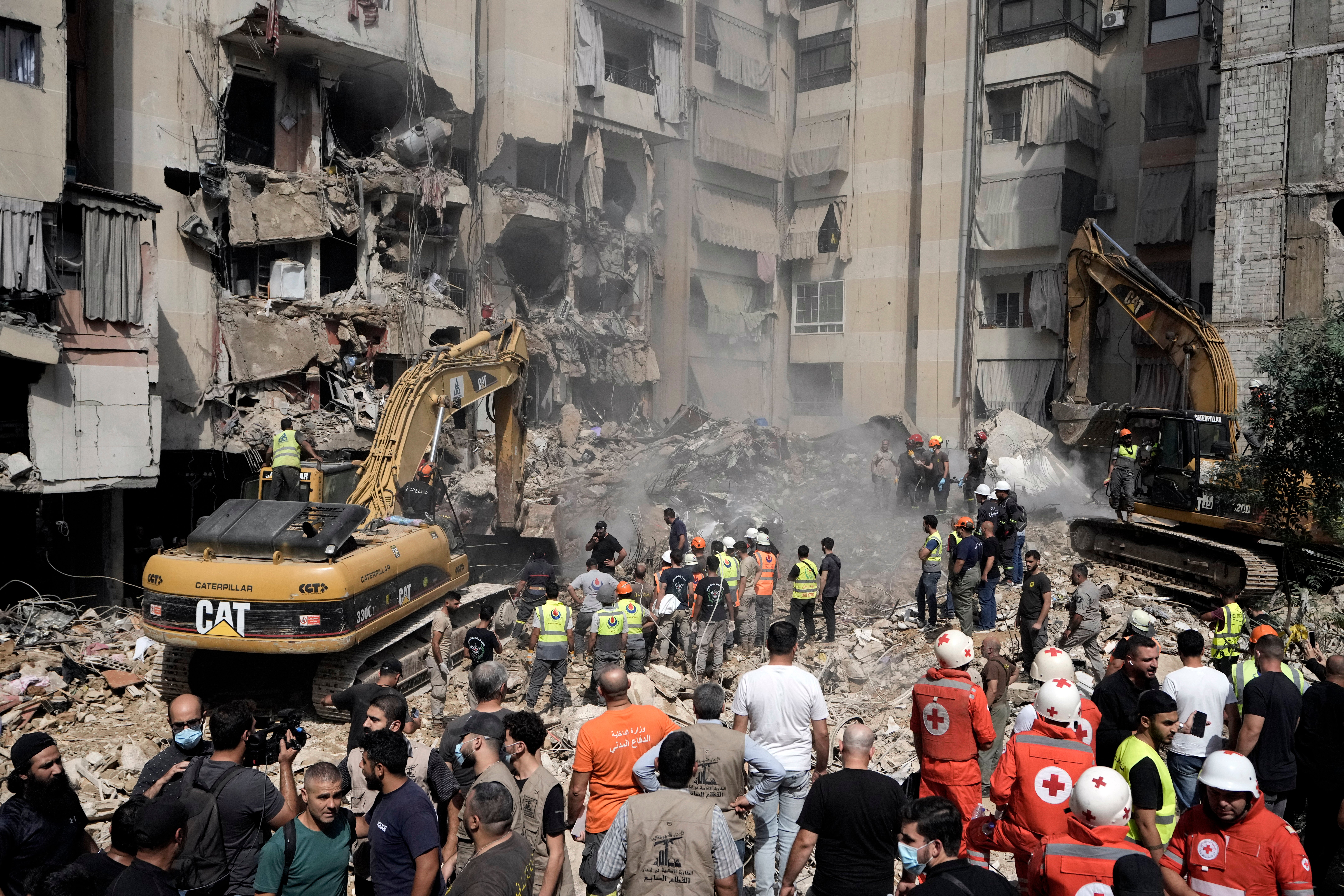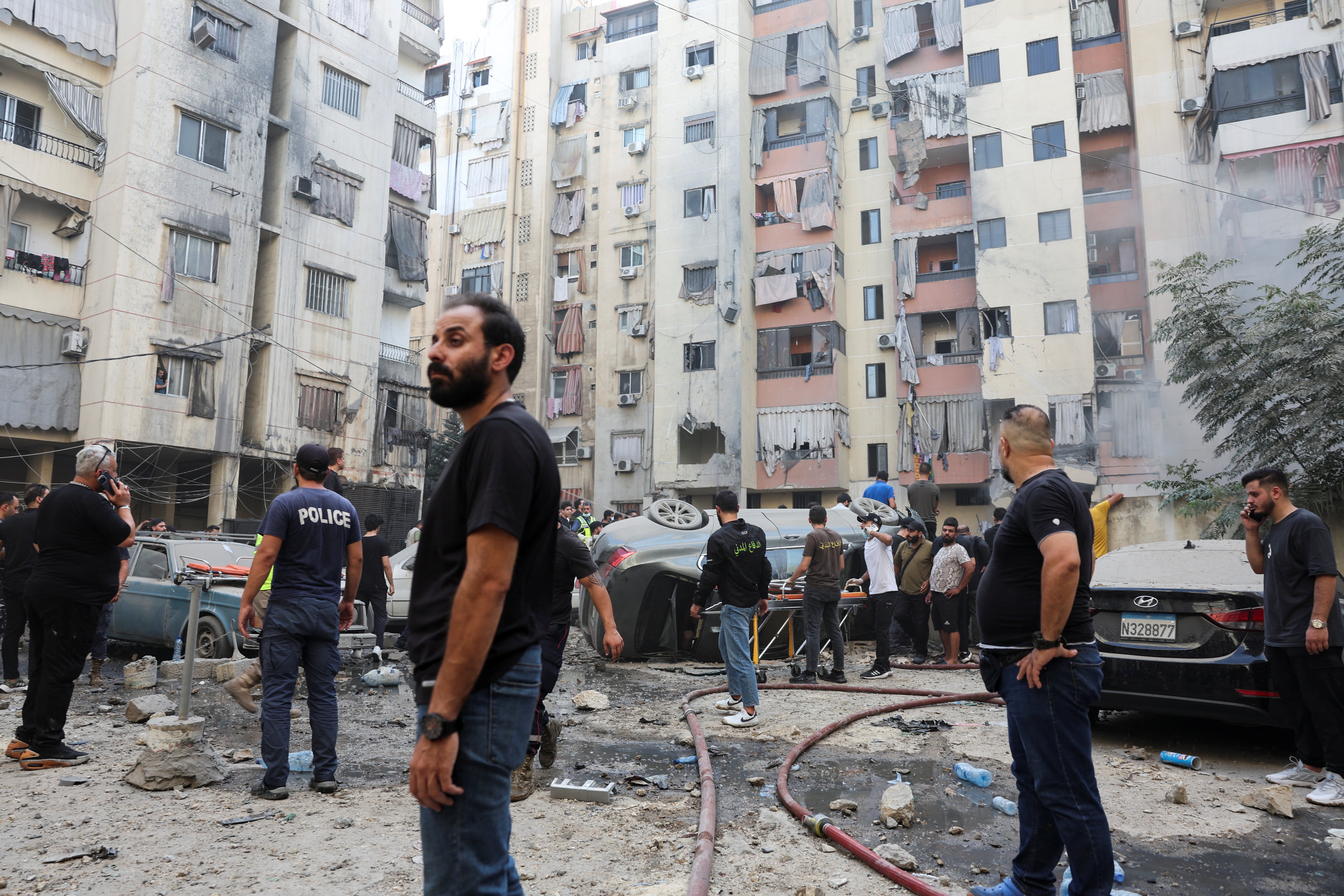Who is Ibrahim Aqil, the Hezbollah commander killed in an Israeli airstrike?
Ibrahim Aqil was killed after multiple Israeli missiles tore into the side of an apartment block in Beirut on Friday

Your support helps us to tell the story
From reproductive rights to climate change to Big Tech, The Independent is on the ground when the story is developing. Whether it's investigating the financials of Elon Musk's pro-Trump PAC or producing our latest documentary, 'The A Word', which shines a light on the American women fighting for reproductive rights, we know how important it is to parse out the facts from the messaging.
At such a critical moment in US history, we need reporters on the ground. Your donation allows us to keep sending journalists to speak to both sides of the story.
The Independent is trusted by Americans across the entire political spectrum. And unlike many other quality news outlets, we choose not to lock Americans out of our reporting and analysis with paywalls. We believe quality journalism should be available to everyone, paid for by those who can afford it.
Your support makes all the difference.Just hours after Hezbollah launched around 150 rockets over Lebanon’s southern border into Israel on Friday, an apartment block around 70 miles north in Beirut was flattened by an Israeli airstrike.
The Israeli military said it had carried out a targeted attack, which ended up killing 31 people, including 15 Hezbollah operatives, as well as wounding 68 others.
The strike was the third devastating blow to the Shi’ite militia in four days after the explosion of the group’s pagers and walkie-talkies killed over 30 and wounded hundreds in a suspected Israeli attack.
One of those slain was Hezbollah commander Ibrahim Aqil, after multiple missiles tore into the side of the building he was in the basement of while meeting other Hezbollah members.
Aqil, 61, was described as one of the group’s “top leaders” by Israel.The Independent takes a look at who he was below.

Who was Ibrahim Aqil?
Born in 1962 in the south of Lebanon, Aqil was energised by the 1979 Islamic Revolution while he was living in the Lebanese capital of Beirut.
He was recruited by the Iran’s Revolutionary Guards into a network known initially as Islamic Jihad and then later as Hezbollah - with the intention of exporting the revolution abroad.
In April 1983, he was involved in Hezbollah’s bombing of the US embassy in Beirut which killed 63 people, according to the US State Department.
He also over saw an attack on the US Marine Corps barracks seven months later which killed 231 US personnel.
In 2013, Washington put a $7million bounty on his head for any information leading to his location, arrest or conviction.

What did he do?
Aqil was responsible for Hezbollah’s Radwan special forces - overseeing the militia’s foreign operations, according to the Israeli military.
He became second-in-command to Hassan Nasrallah, Hezbollah’s leader, after the killing of Fuad Shukr in a separate strike on Beirut earlier this year.
A US Justice Department notice describes him as “a principal member of Hizballah’s terrorist cell the Islamic Jihad Organization”, which claimed responsibility for the two 1983 bombings in Beirut.
The notice also says Aqil directed the taking of US and German hostages in Lebanon and held them there, also in the 80s.
Hezbollah was established in the 1980s to battle Israeli forces that had invaded and occupied southern Lebanon.
Join our commenting forum
Join thought-provoking conversations, follow other Independent readers and see their replies
Comments